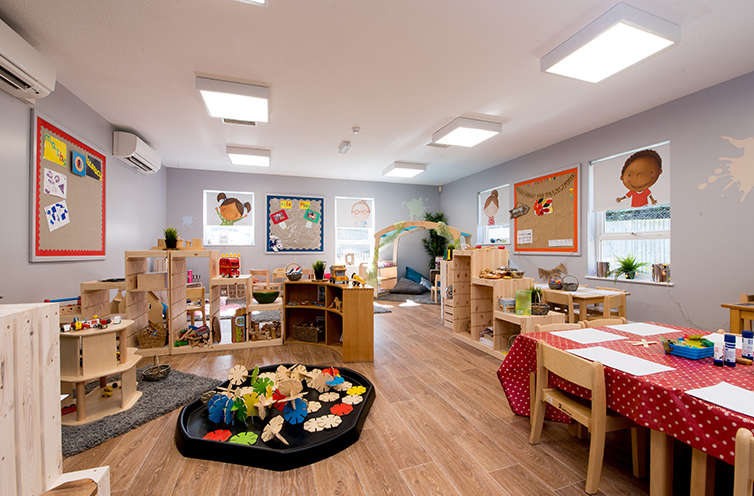SEWA – India
The Self Employed Women’s Association (SEWA) represents over 1.8 million women in India’s informal economy. In response to members’ needs, SEWA set up the Sangini Child Care Workers Cooperative (SCCWC) in 1986. The co-operative’s 628 members are the child care workers and mothers who send their children to the centres, with democratic member control a crucial part of ensuring the quality of education, nutritional, and health needs. Parents pay Rs. 150 (£1.60) per month, which covers 10-15% of the running costs; the remainder is covered by government funding, SEWA ventures and private donations.
The centres take in children aged 0-5 and provide a full-day service (9am-5pm); most working mothers who use the SEWA centres said that they could increase their number of working days and double their income due to the support from the child care centre.
But all income-generating activities came to a standstill during the Covid-19 lockdown. Padmaben, Sangini Childcare Cooperative manager, says: “Our priority was to provide wages to workers and ensure that the children receive their daily nutrition. We managed to garner some support to give wages to our workers. During such a stressful time, our members showed excellent resilience and continued to distribute meals to children and their families. With help from SEWA Cooperative Federation, we were able to reach over 450 households whose children come to our centres.”
As India contemplates easing the lockdown restrictions, the focus for SEWA is ensuring its members have the infrastructure in place to allow them to return to work – including childcare provision. “Women cannot go back to earning if they do not have basic services,” says the organisation. “Childcare is one that is urgently required both for women and their children.”
Little Pioneers – UK
Alongside its food, pharmacy, funeral, energy and utilities businesses, the Midcounties Co-operative runs 45 Little Pioneers nurseries across the UK, employing 1,300 colleagues and looking after 4,500 pre-school children, with plans to double this over the next five years. Parents can become a member of Midcounties, giving them a say in how it is run.

“Our purpose is to deliver the very best childcare, which has the wellbeing of children and colleagues at its heart, and truly values collaboration with parents,” says Sally Bonnar, chief operating officer for Midcounties’ Childcare.
In January, the organisation led a campaign for the government to prioritise Covid vaccinations for nursery workers and make lateral flow testing kits available to pre-school education providers. And more recently, it has been campaigning for the government to recognise childcare colleagues as critical workers (who, if pinged by the Track and Trace app, would not have to isolate if they have been fully vaccinated for at least two weeks).
“Last week nearly 40 colleagues were self-isolating – double the previous week – and we’re struggling to get hold of temporary agency staff to backfill,” said the society.
The issue has also been raised in parliament, with Labour/Co-op MP Meg Hillier highlighting that “children and working parents have already been severely impacted by the pandemic. Now, they could face the brunt of the #pingdemic too”.